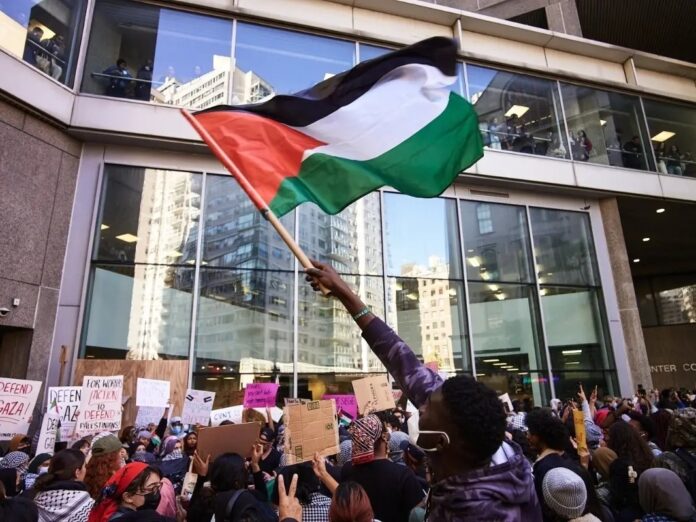The recent wave of protests in Brooklyn and universities across the United States, particularly in response to the conflict between Israel and Hamas, has sparked a significant outcry and raised concerns about civilian casualties in Gaza. These protests, which have even disrupted Jewish Passover Seders, reflect a growing dissatisfaction in the U.S., historically a key ally of Israel, with the ongoing conflict.
Pro-Palestinian demonstrations have been following President Joe Biden, with protests evolving into encampments that attract a diverse mix of students and faculty, including individuals from Jewish and Muslim backgrounds. These gatherings host various activities like teach-ins, interfaith prayers, and musical performances.
In Brooklyn, tensions escalated as New York police arrested individuals for disorderly conduct during a protest, leading to a standoff. The Council on American-Islamic Relations criticized the use of police force, emphasizing the importance of academic freedom and condemning any defamation or endangerment of students based on inflammatory remarks.
Critics of the protests, including some U.S. Congress members, have raised accusations of anti-Semitism and harassment, while civil rights advocates like the ACLU have expressed concerns about free speech and the arrests. The clashes between pro-Palestinian and pro-Israeli demonstrators have intensified, prompting calls for increased protection of Jewish students and highlighting the need to address underlying issues of racism and discrimination.
As tensions persist, universities have faced challenges in managing these protests, with some campuses experiencing disruptions and arrests. The situation has led to debates about free speech, academic freedom, and the need to balance diverse viewpoints on contentious issues like the Israeli-Palestinian conflict.


